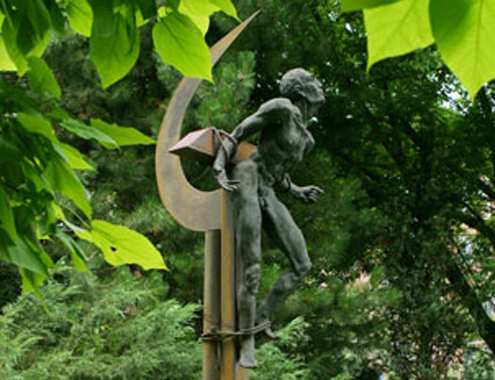In 1989, Francis Fukuyama wrote his essay “The End of History?”. In 1992, the year the Soviet Union collapsed, he followed with a book “The End of History and the Last Man”, arguing that the advent of Western liberal democracy may signal the end point of humanity’s sociocultural evolution and the final form of human government. The Cold War was over, the “New World Order” was on, and the future of humanity was bright and peaceful.
It is 2009, and Mr. Fukuyama might as well attempt to write a sequel. At the beginning of 2009, the last twenty years look more like a temporary ceasefire: China has risen as a serious economic (and increasingly, military) player on the world stage. The Russians are more and more openly threatening military response to the planned US anti-missile installations in the Czech Republic and Poland, and now, they are testing the preparedness of NORAD, as is obvious from today’s report about Canadian fighter jets intercepting two Russian military bombers close to Canadian airspace.
Of course, Russia will deny any wrongdoing, like in the old days of Soviet republics. It would be seen as a weakness, and that’s the last thing any good Russian leader (and bureaucrat) wants to show. Instead, Russia will keep posturing, and when caught, it will turn to a proven trick: point its finger at the defender (in this case, Canada): “the statements from Canada’s defence ministry are perplexing to say the least and cannot be called anything other than a farce,” said an unnamed Russian military source.
People from former Czechoslovakia know this trick very well – after all, it was the “counter revolutionary imperialist forces” that threatened to destroy the country, and prompted the Soviet visit in August 1968, lasting almost 22 years. If anyone in the West is willing to give Russia benefit of the doubt, they should look at Russia’s history, its human rights record of recent years, the concentration of power in the hands of few top Russian oligarchs, or Russia’s increased military presence in the Arctic. The conclusion should be that Russia, as always, is testing the West, counting on its preoccupation with internal security and “War on Terror”.
Twenty years on, the tools may have changed, but the goals (and the rhetorics) of the Russian state have changed little: to deny opportunities to Russian people, oppress them with brutal totalitarian policies, and prevent the West from gaining enough political influence that could lead to an actual change in Russia.
With an economic crisis spreading around the globe, nationalist and protections tendencies are sure to be on the rise, and nowhere do they found more fertile ground than in the two largest communist powers: Russia and China (I can hear the objections to the ‘communist’ label, but they both have totalitarian governments any way you slice it). If the two become allied against the West, a Chinese/US trade war, combined with Russian military posturing, may well lead to the resumption of Cold War.
Surely enough material for Mr. Fukuyama to rethink the ‘end of history’. History is alive, and thriving.








